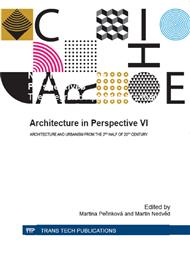p.3
p.12
p.17
p.23
p.30
p.35
p.39
p.44
Assemblage Thinking in Urban Studies: How to Conceive of a City?
Abstract:
Assemblage thinking is process-based thinking. Understanding cities from this perspective therefore implies searching for processes that are assembling the city and that keeps it alive. Because of this approach, we don't need to ask: „what the city is“ but either: „how did cities emerge“ or: „how is their existence maintained“ The paper argues that the perspective, from which we see cities, matters, because it either highlights or hides something. We will argue, that the result of an object-based thinking about cities, that stems from modern order of the world, is a very finite and constricted notion of a city, that in effect precludes any alternatives. But by overcoming the obsolete notions of objects, objectivity and subjects by notions of assemblage, perspectivity and chaining, the new world order may eventually emerge and resolve also the mounting enviromental and social problems. We understand city as a specific kind of creature that, through imposition of limits, has helped the human society to differentiate and become global. But now is the time to limit the city, acknowledge planetary boundaries and this way force the global society to develop itself so it can adapt to the challenges of the Anthropocene.
Info:
Periodical:
Pages:
17-22
DOI:
Citation:
Online since:
November 2014
Authors:
Keywords:
Permissions:
Share:
Citation:


